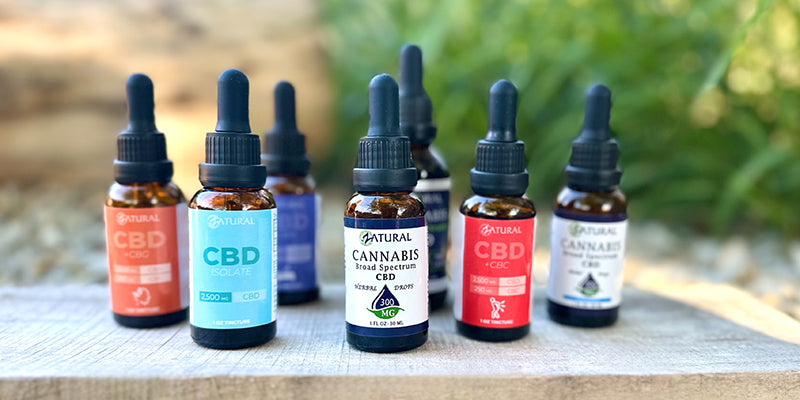Why People Ask “What Is CBD Oil?”
CBD oil is everywhere these days—on store shelves, in online shops, and even in food and drinks. But what exactly is it? And why are so many people adding it to their wellness routines?
CBD oil, short for cannabidiol oil, comes from the hemp plant. It’s different from THC, the compound in cannabis plants that causes psychoactive effects or a “high.” Instead, CBD is non-intoxicating and is often explored for its potential health benefits.
Let’s break down what CBD oil is, how it works in the body, and why people use it.
CBD Oil Definition
CBD oil is a blend of cannabidiol (CBD), a natural compound from the cannabis sativa plant, mixed with a carrier oil such as hemp seed oil, coconut oil, or MCT oil.
Unlike tetrahydrocannabinol (THC), CBD does not produce psychoactive effects. That means you can take CBD products without feeling “high.”
The 2018 Farm Bill made hemp-derived CBD legal at the federal level in the United States, as long as it contains less than 0.3% THC. Since then, the popularity of CBD has skyrocketed, with billions spent annually on CBD oils, gummies, topicals, and even pet products.

How Does CBD Work in the Body?
To understand the effects of CBD, it helps to know about the endocannabinoid system (ECS).
The ECS is part of the nervous system. It helps regulate mood, appetite, sleep, memory, and pain management. It does this through CB1 and CB2 receptors found throughout the brain, immune system, and other organs.
When cannabidiol CBD interacts with these receptors, it may help the body maintain balance, a process called homeostasis. This is why some people turn to CBD for long-term wellness support.
Benefits of CBD
Research is still developing, but CBD shows potential in several areas:
- Chronic pain management: Some studies and anecdotal evidence suggest CBD may reduce discomfort and inflammation.
- Sleep support: CBD may calm the nervous system and encourage more restful sleep.
- Reduced anxiety: By influencing serotonin receptors, CBD may ease stress and promote relaxation.
- Skin health: Topical CBD products may support skin balance and reduce irritation.
- Overall wellness: Many people take CBD as a dietary supplement to support the body’s natural rhythms.
Clinical studies are ongoing, but the early findings and reports from users highlight CBD’s broad potential benefits.
Types of CBD Oil Products
CBD products come in different forms so you can choose what fits your lifestyle:
- CBD oils/tinctures – Taken under the tongue for fast absorption.
- CBD capsules/softgels – Pre-measured doses of CBD for daily consistency.
- CBD edibles – Gummies or chocolates that make it easy to take CBD.
- CBD topicals – Creams, balms, or lotions applied to the skin for targeted relief.
- CBD for pets – Specially formulated oils or treats safe for cats and dogs.
CBD also comes in three main types:
- Full spectrum: Contains CBD, other cannabinoids, and up to 0.3% THC.
- Broad spectrum: Contains CBD and other cannabinoids but no THC.
- Isolate: Pure CBD with no other cannabinoids.
Side Effects and Safety of CBD
For most people, CBD is safe. However, like any supplement, it can cause mild side effects such as:
- Dry mouth
- Fatigue or drowsiness
- Appetite changes
- Digestive upset
CBD can also interact with certain medications. Always talk with a healthcare professional before adding CBD to your routine, especially if you take prescription drugs or have ongoing health conditions. Pregnant or breastfeeding women should avoid CBD use until more research is available.

Is CBD Oil Legal?
So, is CBD legal in all states? At the federal level, yes—if it’s derived from hemp and contains less than 0.3% THC. The 2018 Farm Bill separated hemp from marijuana under the Controlled Substances Act, which made hemp-derived CBD legal nationwide.
But here’s the catch: state law can differ. Some states regulate CBD more strictly, limiting how it’s sold or banning it in foods and beverages.
The Food and Drug Administration (FDA) also plays a role. So far, the FDA has only given full approval to one CBD product, Epidiolex, a prescription medication used to treat seizures linked to multiple sclerosis and other conditions. Most CBD products on the market—like oils, gummies, or topicals—are sold as dietary supplements, not FDA-approved medicines.
That means quality can vary. To protect yourself, always buy CBD products that are third-party tested for safety and purity. Testing ensures they’re free of heavy metals, pesticides, and other harmful contaminants.
Sum It Up
CBD oil, derived from the hemp plant, is a natural product that interacts with the endocannabinoid system to support balance in the body. While more clinical studies are needed, many people already use CBD for sleep, reduced anxiety, pain relief, and overall wellness.
CBD is legal at the federal level in the United States as long as it contains less than 0.3% THC, but state law may add restrictions. Because the FDA has not approved most CBD products, choosing high-quality, third-party tested options is key.
If you’re considering CBD, start with a small amount, monitor how your body responds, and consult a healthcare professional to ensure it’s safe for you.
At Zatural, we provide lab-tested CBD oils and products designed to support your wellness goals naturally. Explore our selection and find what works best for you.
Zatural CBD Products
This blog post is for educational purposes only.
*FDA DISCLAIMER -The FDA has not evaluated these statements.




